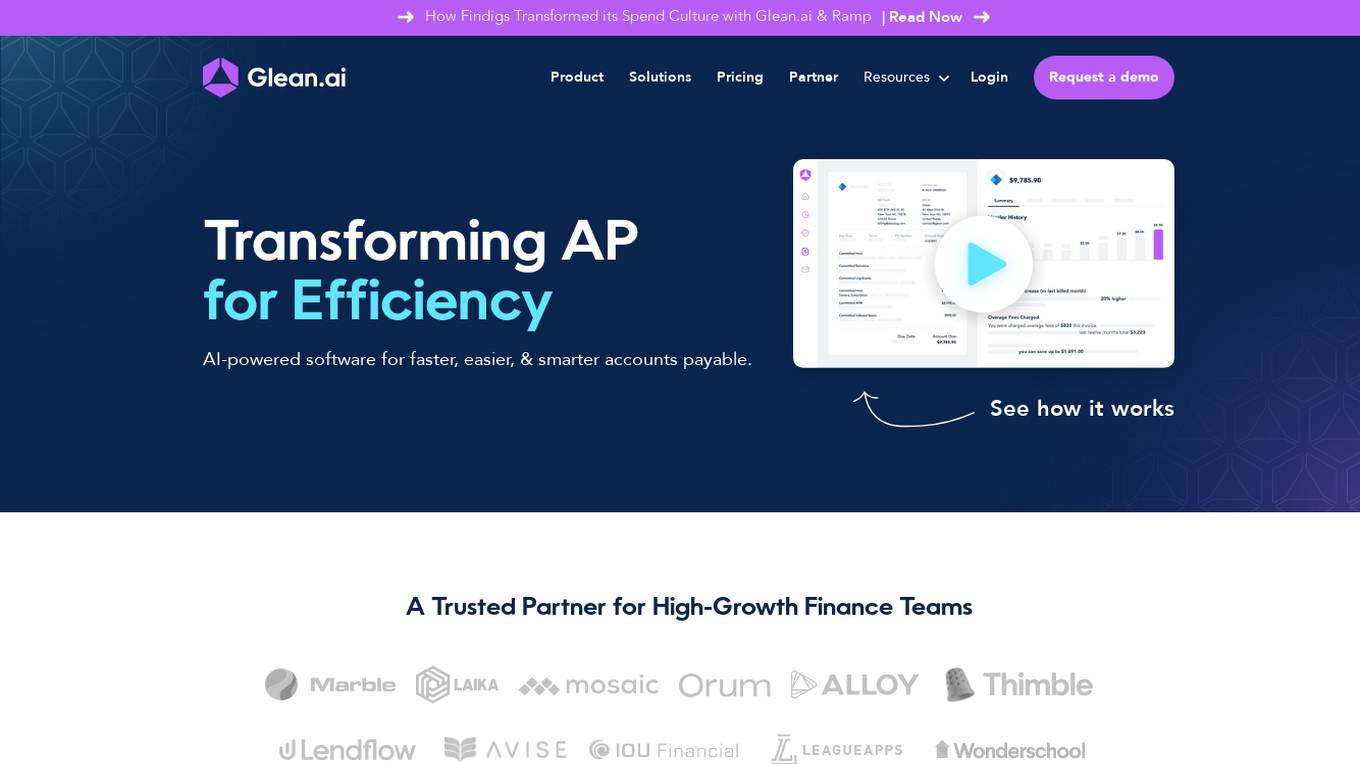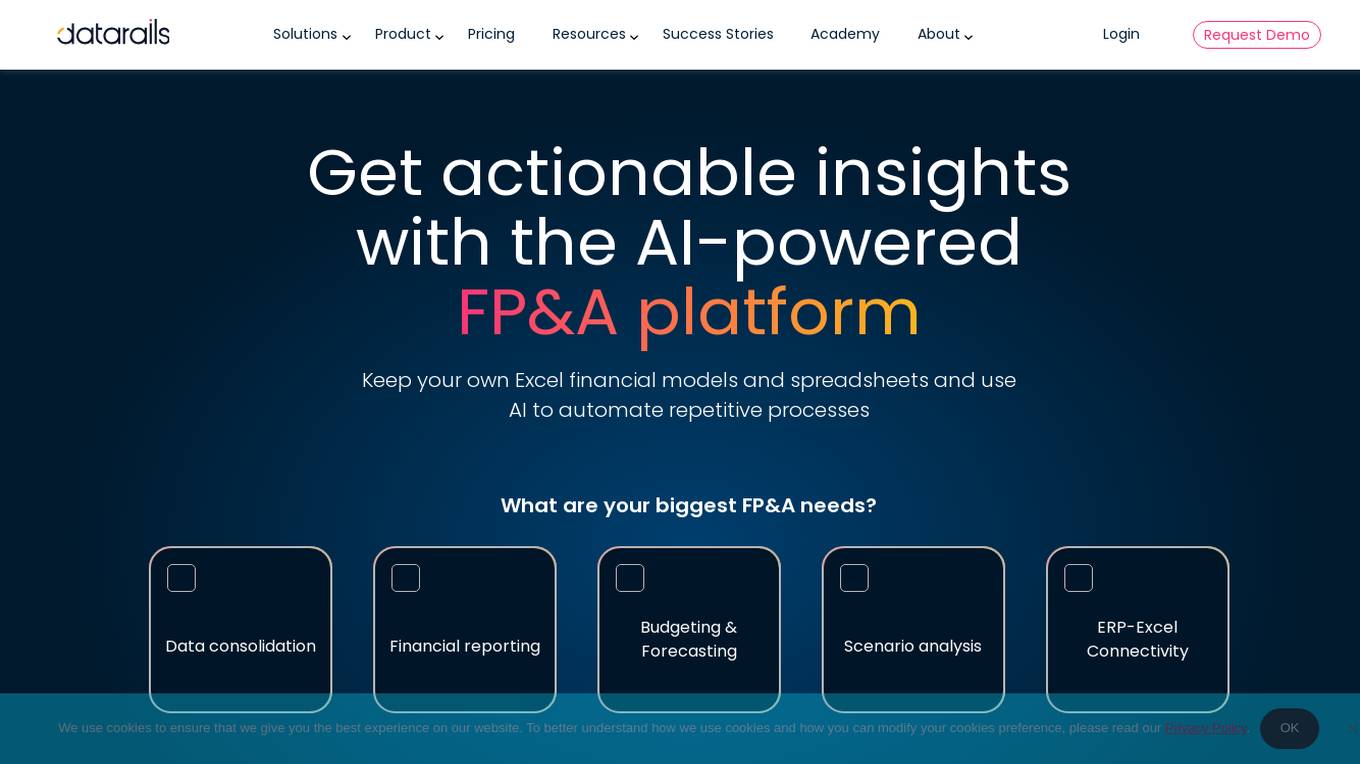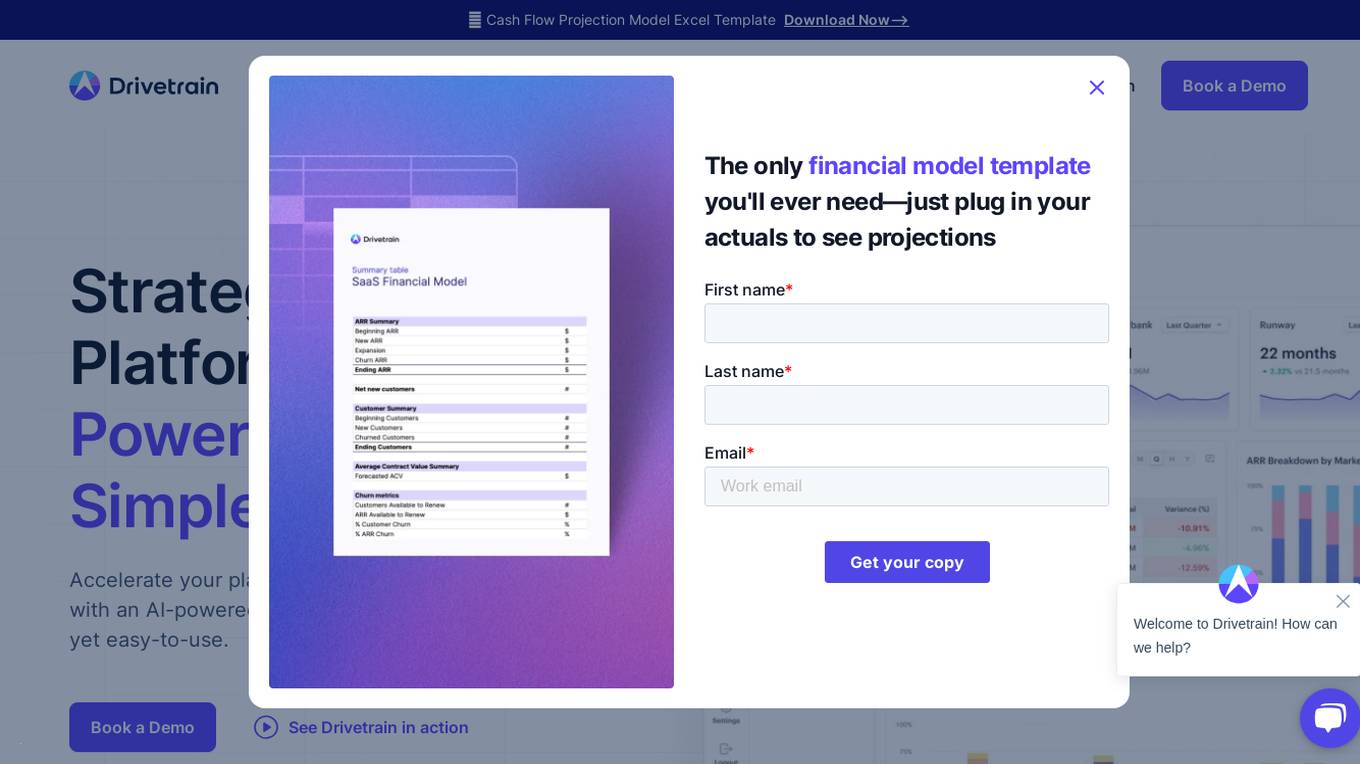Best AI tools for< Fp&a Analyst >
Infographic
3 - AI tool Sites

Glean.ai
Glean.ai is an AI-powered software designed to enhance accounts payable (AP) processes, making them faster, easier, and smarter. It offers a range of features to streamline AP tasks, including automated data extraction, GL coding, bill approvals and payments, accruals, prepaid amortizations, and more. Glean.ai also provides valuable insights into spending patterns, helping businesses identify areas of overspending and uncover opportunities for cost savings. With its user-friendly interface and robust data benchmarking capabilities, Glean.ai empowers accounting and FP&A teams to collaborate seamlessly, plan effectively, and make informed decisions regarding vendor spend.

Datarails
Datarails is a financial planning and analysis platform for Excel users. It automates data consolidation, reporting, and planning while enabling finance teams to continue using their spreadsheets and financial models. With Datarails, finance teams can save time on repetitive tasks and focus on strategic insights that drive business growth.

Drivetrain
Drivetrain is a Strategic Finance Platform designed for modern businesses. It offers real-time tracking and reporting, continuous planning and forecasting, and a single source of truth by combining accounting and business data effortlessly. The platform empowers finance teams globally with AI-powered FP&A software, enabling users to accelerate planning, tracking, and forecasting. Drivetrain provides integrations with ERP, CRM, HRIS, and other systems, along with over 200 pre-built connectors. The platform is praised for its collaborative features, user-friendly interface, and ability to make data-driven decisions quickly.

